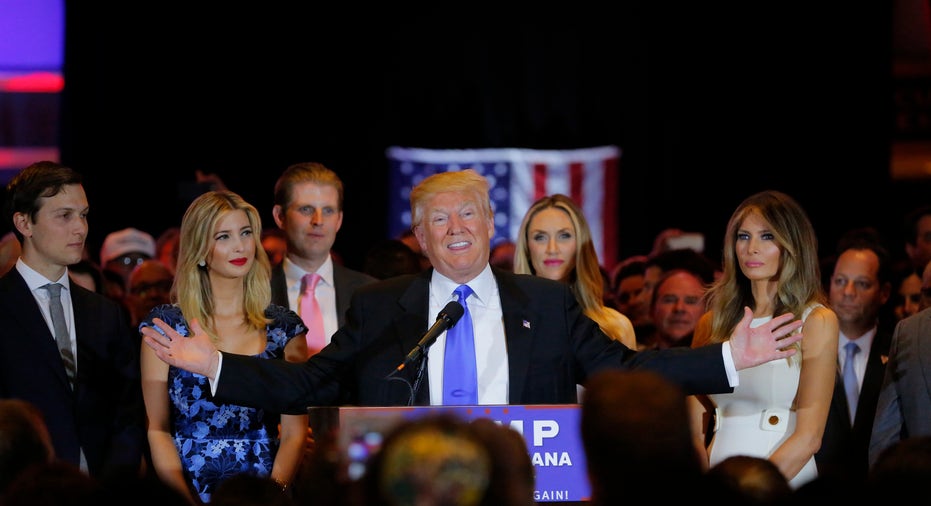Trump, in Capitol Hill Visit, Faces Party Skeptics Looking for Unity

Presumptive U.S. Republican presidential nominee Donald Trump will visit Republican lawmakers on Thursday, but instead of what is usually just a rite on the road to the nomination, Trump will face pressure to tone down his rhetoric and clarify his policy positions as a step toward unifying the fractured party.
Trump's takeover of the Republican Party has shaken the party’s establishment and prompted soul-searching over whether to reluctantly get behind him or cede any role in the Nov. 8 presidential election, when Hillary Clinton is expected to be the Democratic nominee.
Republican officials and lawmakers say Trump has the potential to appeal to a greater number of Republican voters but must make changes to make party leaders more comfortable with him.
“I think he has to show what kind of president that he would be," said Senator Susan Collins of Maine. "But I believe he can do that, so I am not one who has foreclosed the possibility of eventually supporting him. But I need to see more from him."
Many Republicans have been appalled at Trump's incendiary style, such as his suggestion last week that former rival Ted Cruz's father was in contact with Lee Harvey Oswald before Oswald assassinated President John F. Kennedy in 1963.
Some Republicans have also been rankled by some of Trump's policy proposals, including his declaration that NATO is obsolete and his call to temporarily ban Muslims from entering the country.
The most high-profile holdout for Trump is House of Representatives Speaker Paul Ryan, who is to meet the billionaire real estate developer and Republican National Committee Chairman Reince Priebus on Thursday.
Ryan said last week he was not yet ready to support Trump, prompting Trump to fire back that he was not ready to support Ryan's agenda.
"I just hope Donald Trump realizes how important (Ryan) is, and how important it will be for Donald Trump as president, if and when he gets there," said Senator Orrin Hatch of Utah.
Ahead of the meeting, Ryan is to talk by phone with a Trump emissary, former Republican presidential candidate Ben Carson.
Carson spokesman Armstrong Williams said the retired neurosurgeon's goal is to "smooth the way" for the Ryan meeting by explaining Trump's views on key issues.
Trump's victory in the Republican nomination fight has created rifts in the party not seen for decades, leading Priebus and other Republicans to try to mend the fissures in order to avoid a potentially disastrous Election Day when control of Congress will also be at stake.
"His hot rhetoric is one of his strengths. He just has to be wiser on when to use the hot rhetoric and pick smarter fights," said Ari Fleischer, former White House press secretary to President George W. Bush.
One of Trump's biggest backers in Washington, Senator Jeff Sessions of Alabama, is trying to win over skeptics on Capitol Hill by arguing that Trump would advance a mainstream Republican agenda.
"I think they’ve concluded from Trump’s blunt style that he wasn’t sophisticated," Sessions said. "I think we’re finding quite differently. The man is smart, hard working, strong, and he’s got the courage to make change."
Eric Fehrnstrom, who was a senior adviser to 2012 Republican nominee Mitt Romney, said a Quinnipiac University poll showing Trump running even with Clinton in Ohio, Florida and Pennsylvania, all critical swing states, would boost his standing with Republicans and said the party's July 18-21 national convention in Cleveland would give him a chance to reset perceptions.
"The most important thing Donald Trump can do is show the American people that he has the character, the temperament and the seriousness of purpose to be president," he said.
(Reporting by Steve Holland and Susan Cornwell; Editing by Leslie Adler)



















